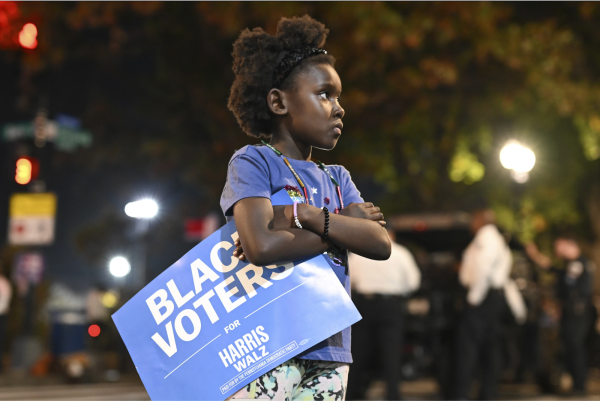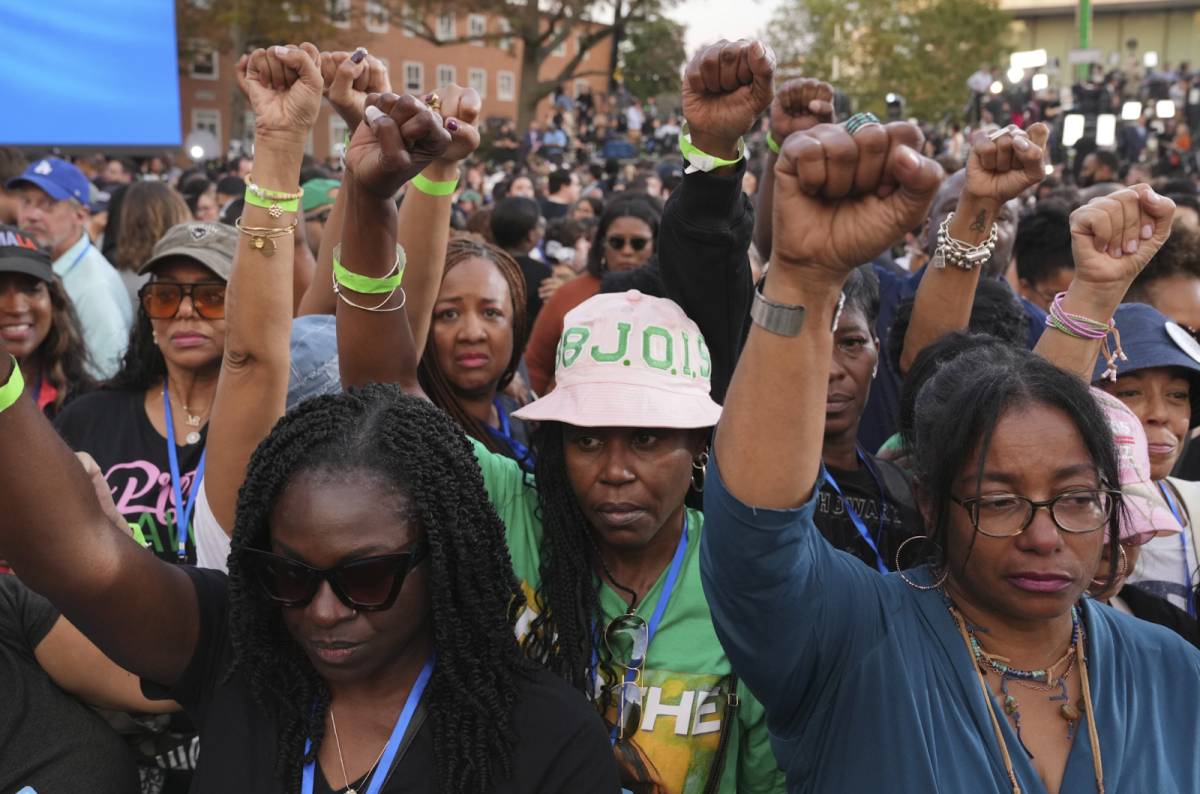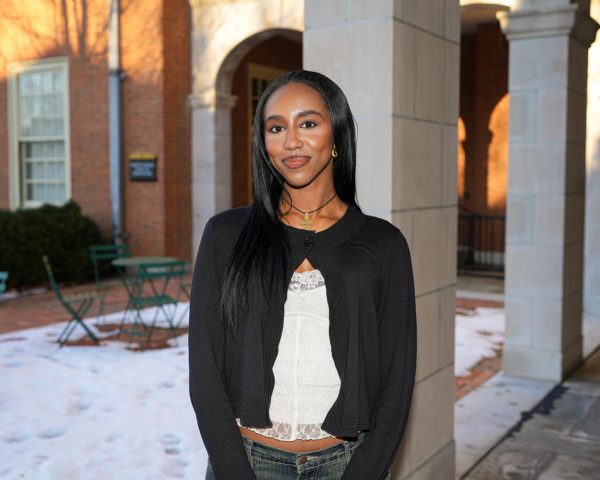“The party has always wanted our output, not necessarily our input […]. We have for a very long time been the people who did the work, but never been asked to sit at the table,” Marcia Fudge, Former U.S. Secretary of Housing and Urban Development
For some, the outcome of the 2024 election was inevitable. For many others and myself, holding out hope until the very moment Donald Trump was announced as the 2024 president-elect was our only option.
The truth is, I wasn’t able to move on as quickly as many of my peers. For people from marginalized identities, it was a slap in the face. It served as a reminder that rather than seeing a successful and qualified woman of color in the White House, our fellow citizens would instead elect a man guilty of 34 felony counts, accused of multiple sexual misconduct cases and consistent in his hateful and untrue speech.
In a class discussion following the election, many of my classmates questioned what it was about Vice President Kamala Harris’ campaign that led to her ultimate defeat. Was it her entering the race late? An overwhelming divide among the Democratic Party? Weariness over how President Joe Biden went about his time in office?
While these may all be contributing factors, what I thought was interesting was that not one person mentioned what seemed to me as the most apparent reason — a factor that no other presidential candidate has ever had to consider: the double-edged sword of racism and sexism.
If you’re not a Black woman, you may not understand the level of frustration and exhaustion we are feeling right now. Black women have consistently turned out to vote and have proven to be the Democratic Party’s most active and loyal voting bloc.
Yet polling through the Kaiser Family Foundation shows that many Black women don’t feel the Democratic Party is looking out for their interests.
The journal article “#BlackGirlMagic Demystified: Black Women as Voters, Partisans and Political Actors,” found in “Pyhlon” (the peer-reviewed journal that W.E.B. Du Bois founded at Clark Atlanta University), explores the roots of Black women’s distinctiveness regarding voting turnout.
“The manifestation of structural inequalities — which can affect men and women or Blacks and whites differently based on their multiple social identities — has implications for how much Black women turn out and for whom they vote,” authors Andra Gillespie and Nadia E. Brown stated.
This is important to understand because many attribute Black women’s near-unanimous Democratic vote as a representation of “groupthink.” Groupthink is the practice of making decisions in a way that discourages creativity or individual responsibility.
In reality, there are very rational reasons why Black women are such a cohesive voting bloc, which Gillespie and Brown articulate: “We want to take seriously the notion that Black women, as a result of their lived experience, bring a unique experience to the ballot box, to legislatures and to our political offices.”

Strong support for the Democratic Party within the Black community has been consistent since Lyndon Johnson shepherded the Civil Rights Act in 1964, which solidified the Democrats’ advantage on civil rights, which has remained so ever since.
Even among the Black community, there is a gender gap in voting outcomes. There is no definitive conclusion as to why Black men are less likely to vote Democratic than Black women, but certain studies can help understand why this gap exists.
To understand this, we must remember the unique lived experience of Black women. In 1989, Professor of Columbia Law Kimberle Crenshaw coined “intersectionality” to provide a theoretical framework for this experience.
“For Black women, racialized experiences are gendered, and gendered experiences are racialized,” Crenshaw said.
Why do Black women stay loyal to a party that doesn’t show up for them? Scholarship has shown that their support of the Democratic Party has less to do with the party’s support of Black women and more to do with the lack of a viable alternative.
Princeton University Professor Paul Frymer’s theory of electoral capture argues that as a result of overwhelming loyalty to one party, “The party leadership … can take the group for granted because it recognizes that, short of abstention or an independent (usually electorally suicidal) third party, the group has nowhere else to go.”
He further explains that the perception of voting as an effective tool to have their voice heard is largely why Black women overwhelmingly participate compared to other groups.
This framework is also crucial for understanding the evaluation of Black women candidates in highly visible political offices. In 2020, Vice President Harris’ campaign was subject to criticism and concerns over her electability. Similar concerns appeared in her 2024 Presidential campaign despite her being more qualified than Trump.
To be clear, I don’t believe Harris is the perfect or ideal presidential candidate. However, I understand how our two-party system works, and with the increasing polarization of American politics, it’s nearly impossible for a third-party candidate to win.
I make this point because, although we should hold our political leaders accountable, as we saw with the Democratic Party and President Biden, we must be realistic about how the system works and who is impacted by our choices.
Amid my disappointment, I’ve found solace in knowing I made my voice heard, even if the outcome was not what I hoped for.
In conclusion, I want to leave you all with this message by California Senator Laphonza Butler: “The country better be ready for the future of Black women who are going to continue to show up and demand their seats.”











